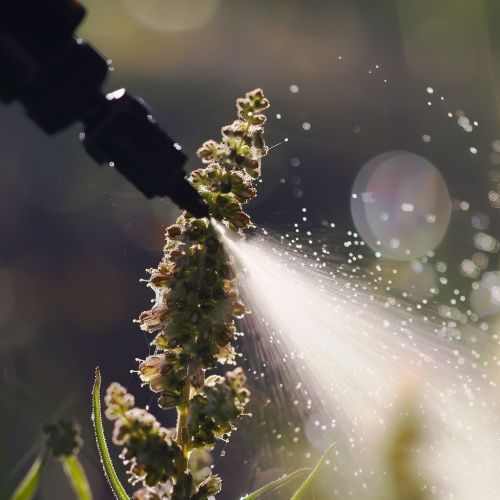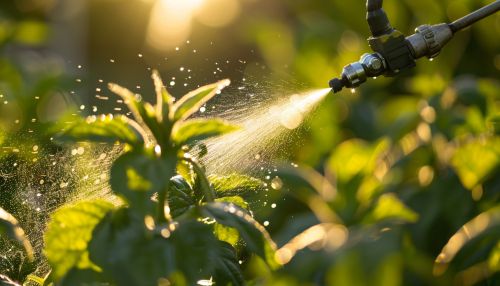Biochemical Pesticides
Introduction
Biochemical pesticides are a specific type of pesticide that are naturally occurring substances that control pests by non-toxic mechanisms. They are derived from organisms including plants, bacteria, and other microbes. These substances can be very specific to individual species of pests, reducing the risk of harm to non-target organisms.


Classification
Biochemical pesticides can be classified into several categories based on their source and mode of action:
- Plant-Incorporated Protectants (PIPs): These are substances that plants produce from genetic material that has been added to the plant. For example, scientists can take the gene for the Bt pesticidal protein, and introduce the gene into the plant's own genetic material. Then the plant manufactures the substance that destroys the pest.
- Microbial pesticides: These consist of a microorganism (e.g., a bacterium, fungus, virus or protozoan) as the active ingredient. Microbial pesticides can control many different kinds of pests, although each separate active ingredient is relatively specific for its target pest(s).
- Biochemical pesticides: These are naturally occurring substances that control pests by non-toxic mechanisms. Conventional pesticides, by contrast, are generally synthetic materials that directly kill or inactivate the pest.
Mode of Action
Biochemical pesticides have a unique and specific mode of action. They control pests through non-toxic mechanisms, such as disrupting their mating patterns, deterring them from feeding, or otherwise interfering with their lifecycle. This is in contrast to synthetic pesticides, which typically kill pests directly through poisoning.
Advantages
Biochemical pesticides offer several advantages over conventional synthetic pesticides. They are typically less harmful to humans and the environment, due to their natural origins and specific modes of action. They are less likely to result in pesticide resistance, as they do not exert the same selective pressure on pest populations as synthetic pesticides. Furthermore, they often degrade more quickly in the environment, reducing the risk of long-term environmental contamination.
Disadvantages
Despite their advantages, biochemical pesticides also have some limitations. They are often more expensive to produce than synthetic pesticides, and may not be as effective in controlling large pest populations. They may also require more frequent application, as they often degrade more quickly in the environment. Additionally, they can be more difficult to handle and apply due to their biological nature.
Regulatory Aspects
In many countries, biochemical pesticides are regulated differently than conventional pesticides. They are often subject to less stringent testing and approval processes, due to their perceived lower risk to human health and the environment. However, this can vary by country and the specific substance in question.
Future Perspectives
The use of biochemical pesticides is expected to increase in the future, as concerns about the environmental and health impacts of synthetic pesticides continue to grow. Advances in biotechnology and genetic engineering may also lead to the development of new and more effective biochemical pesticides.
